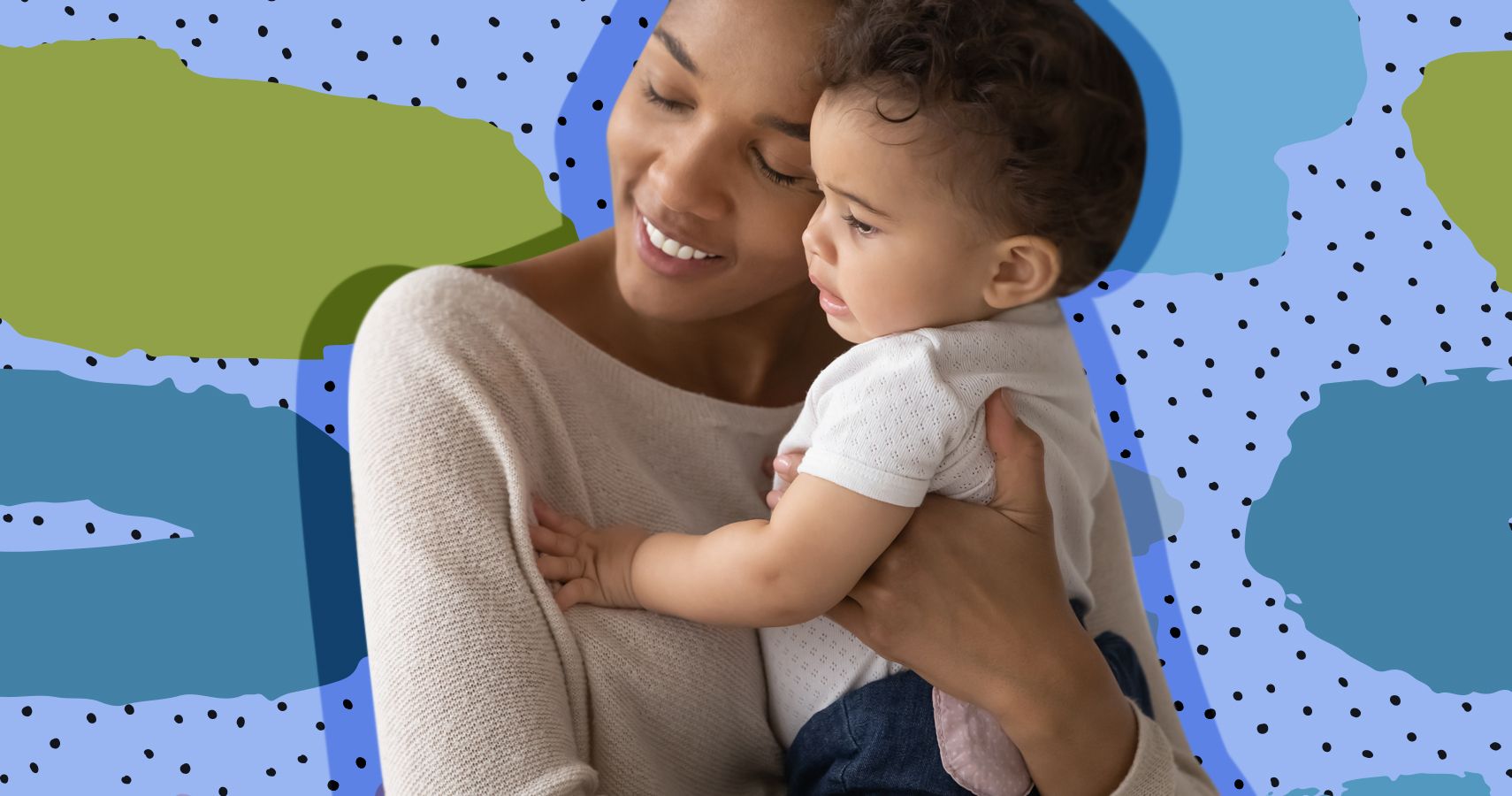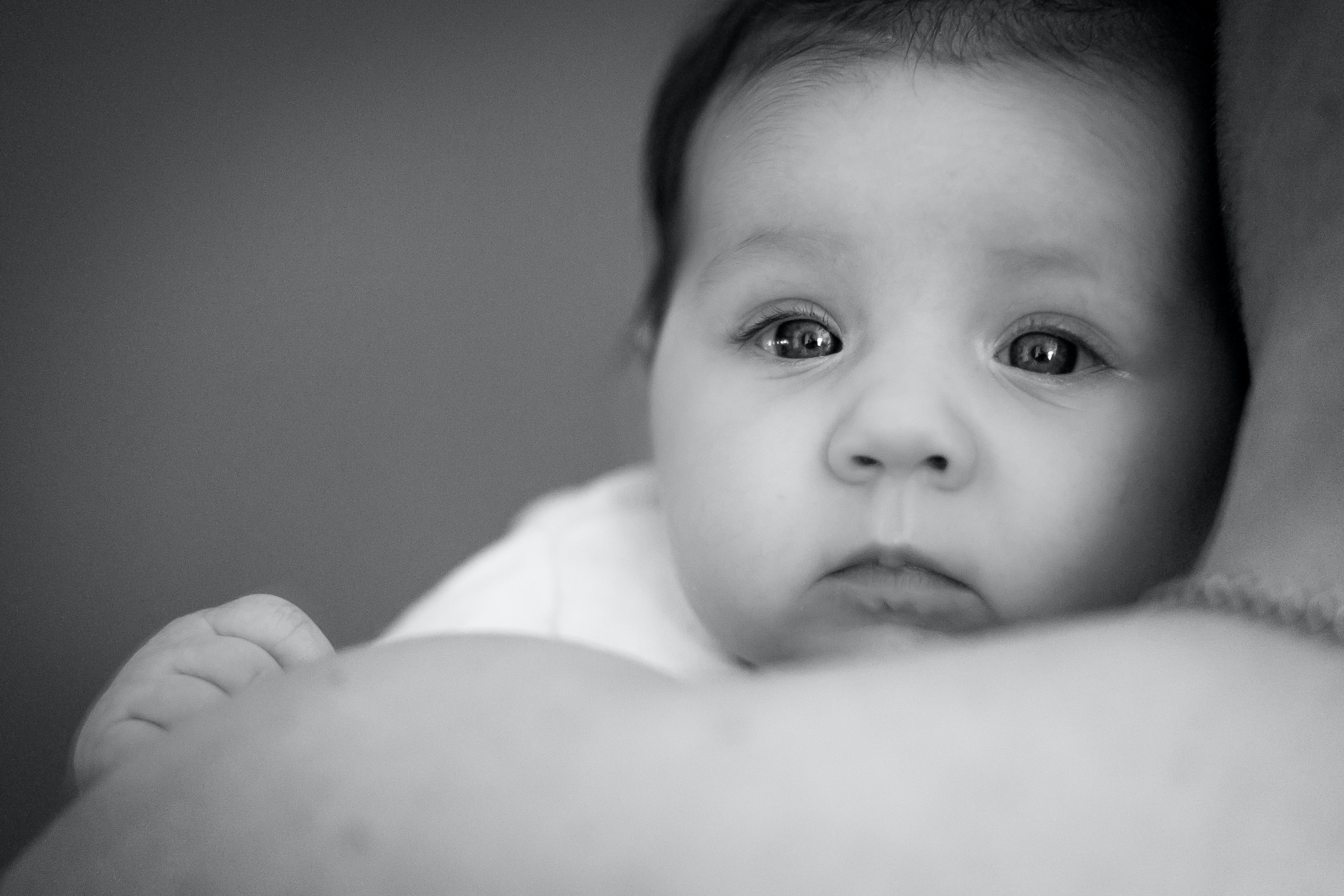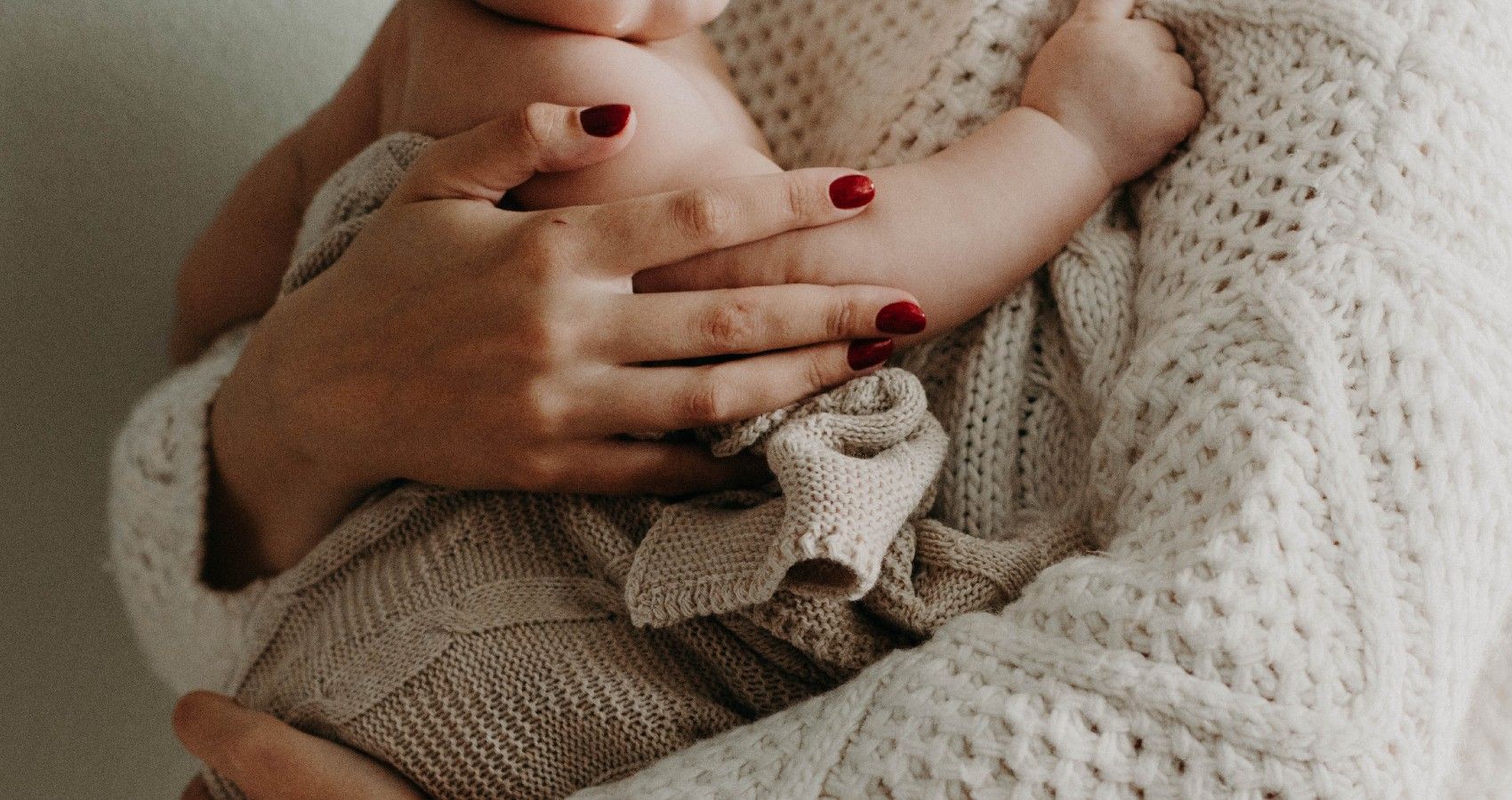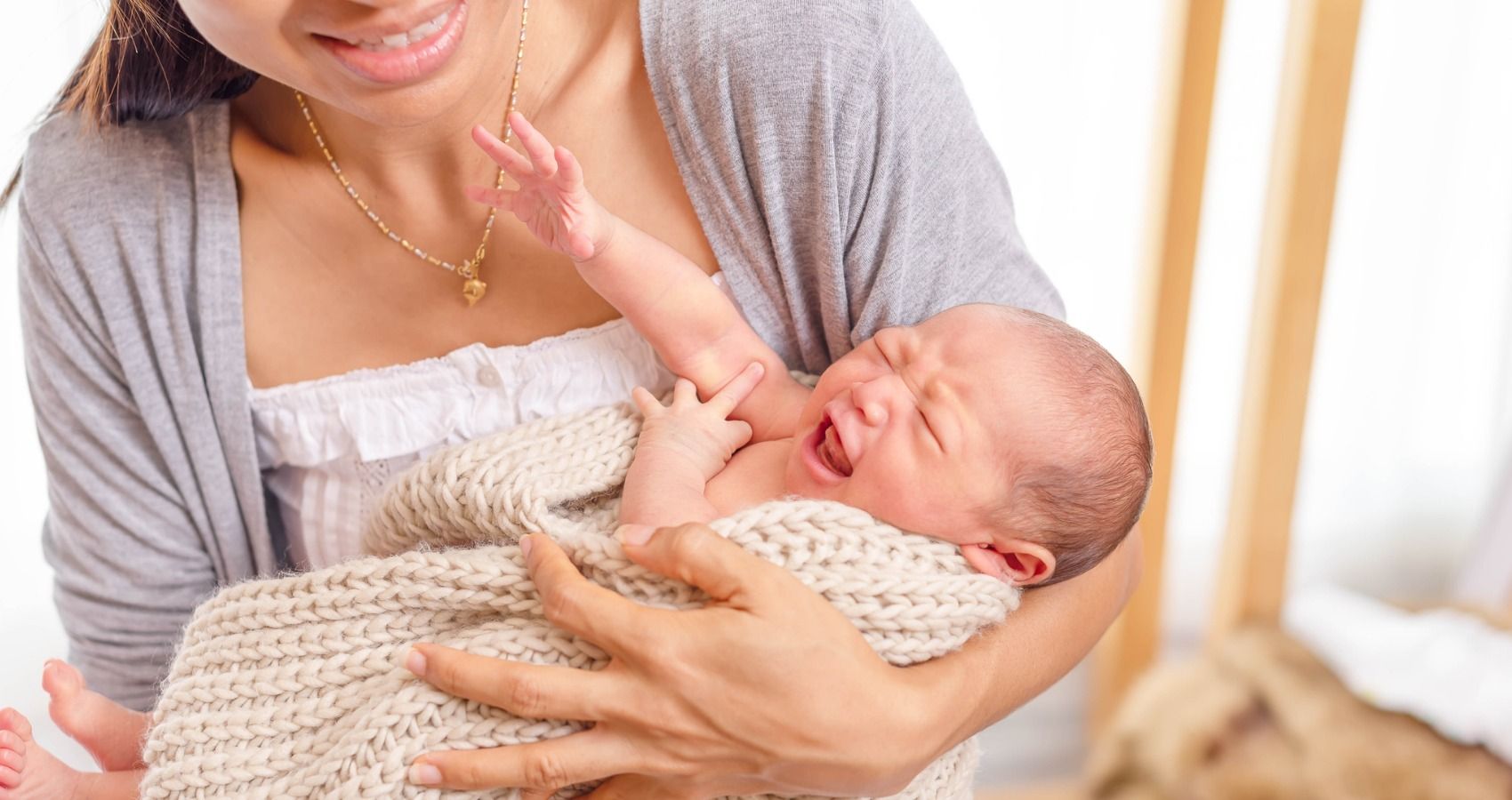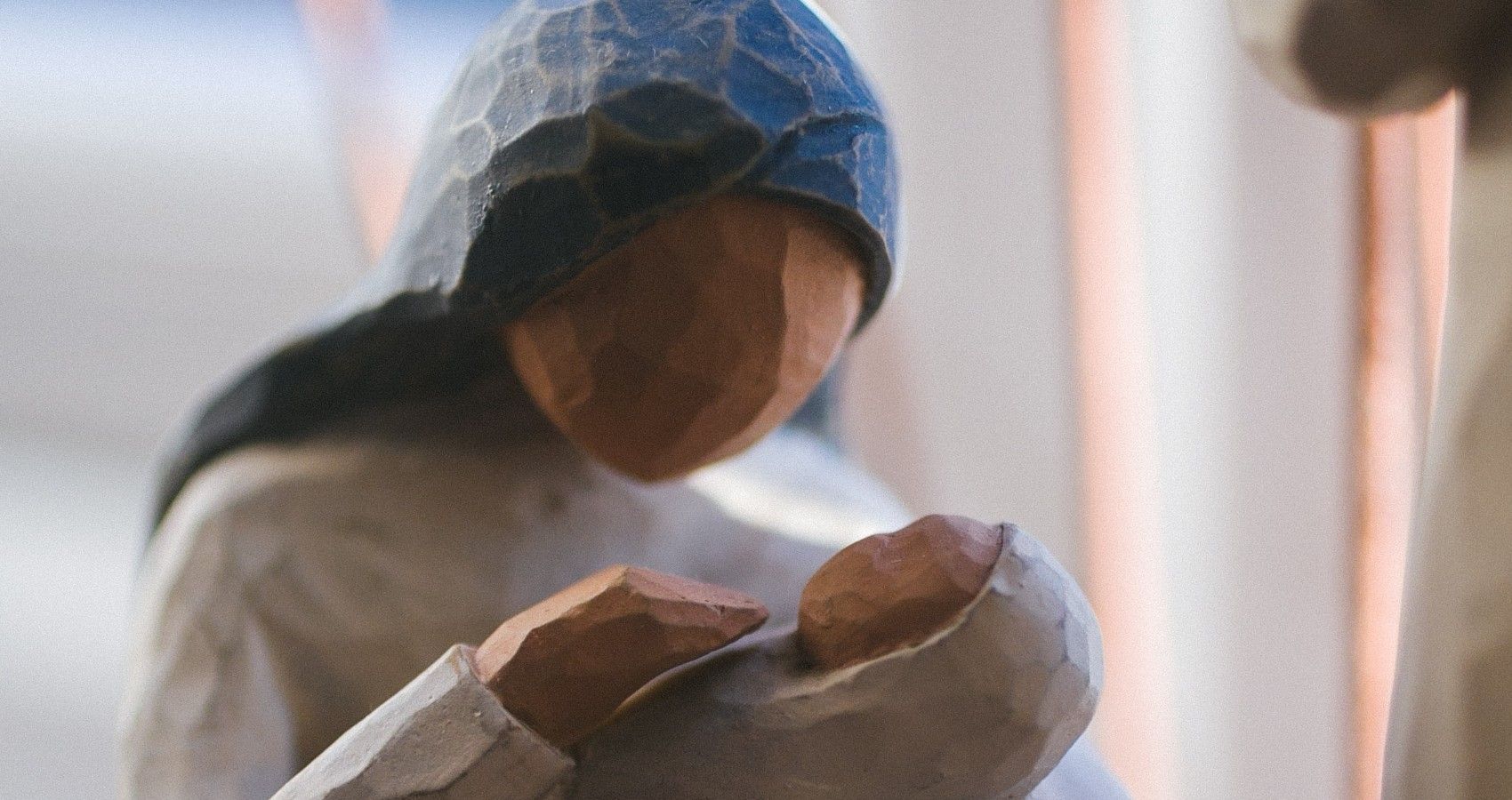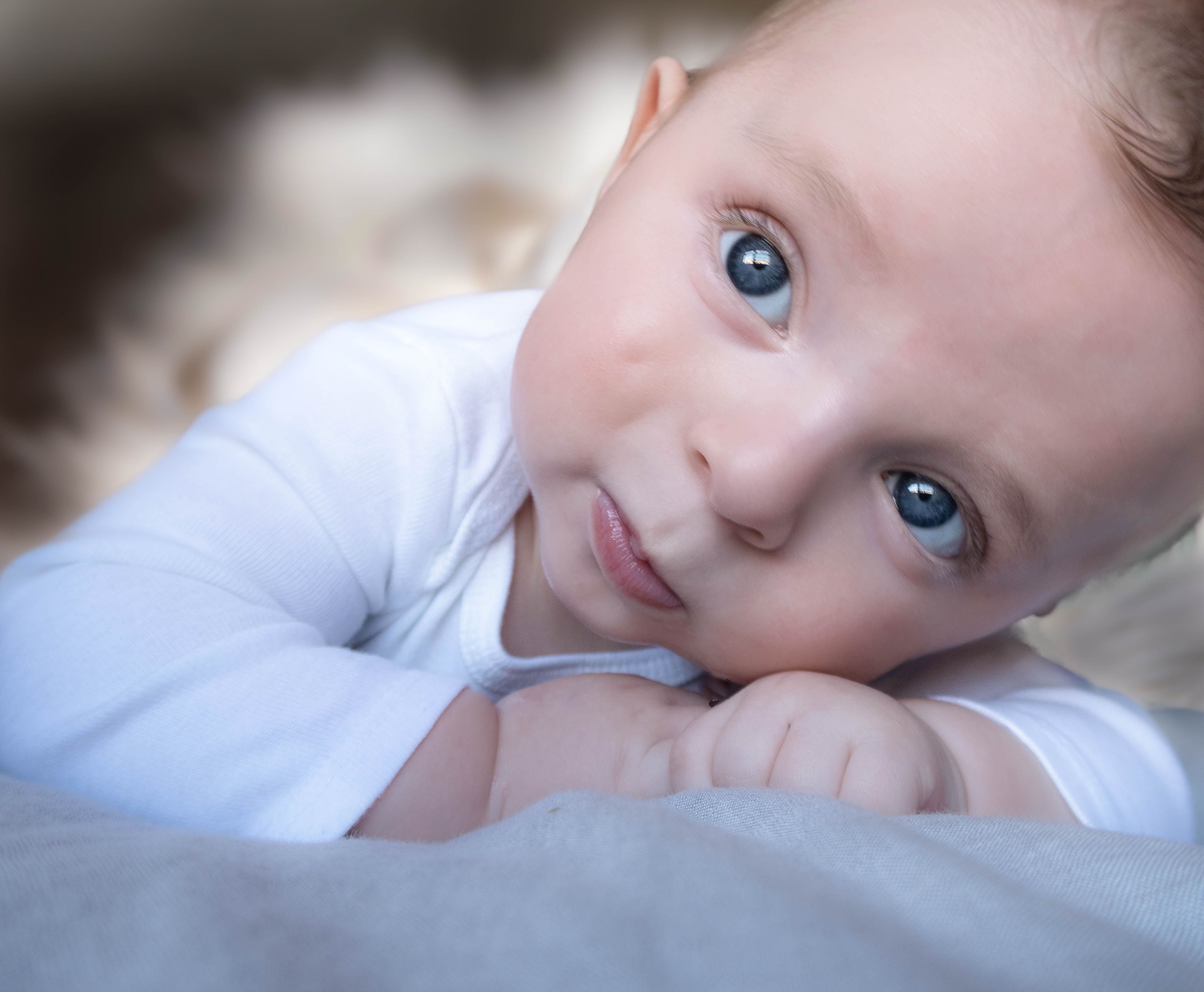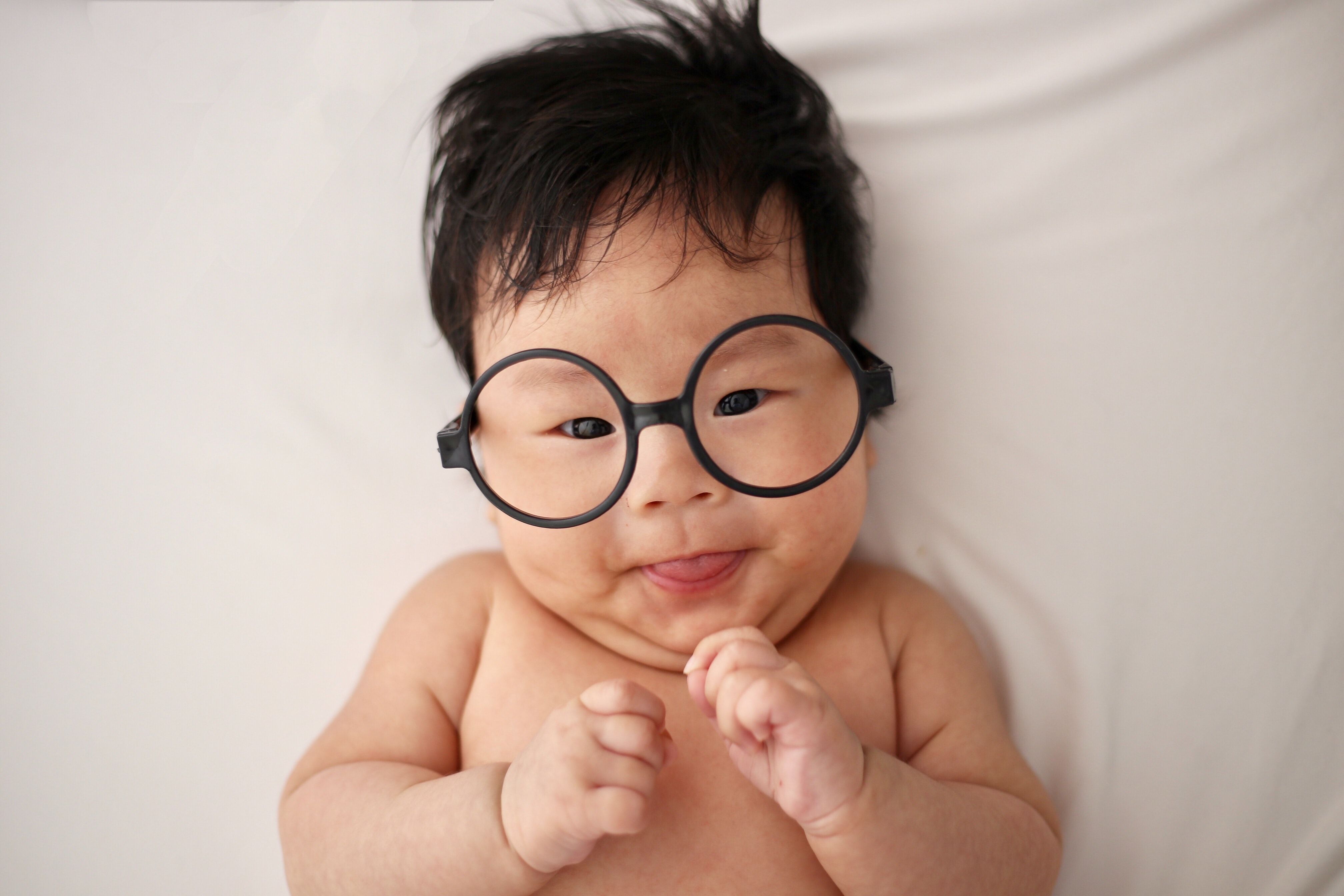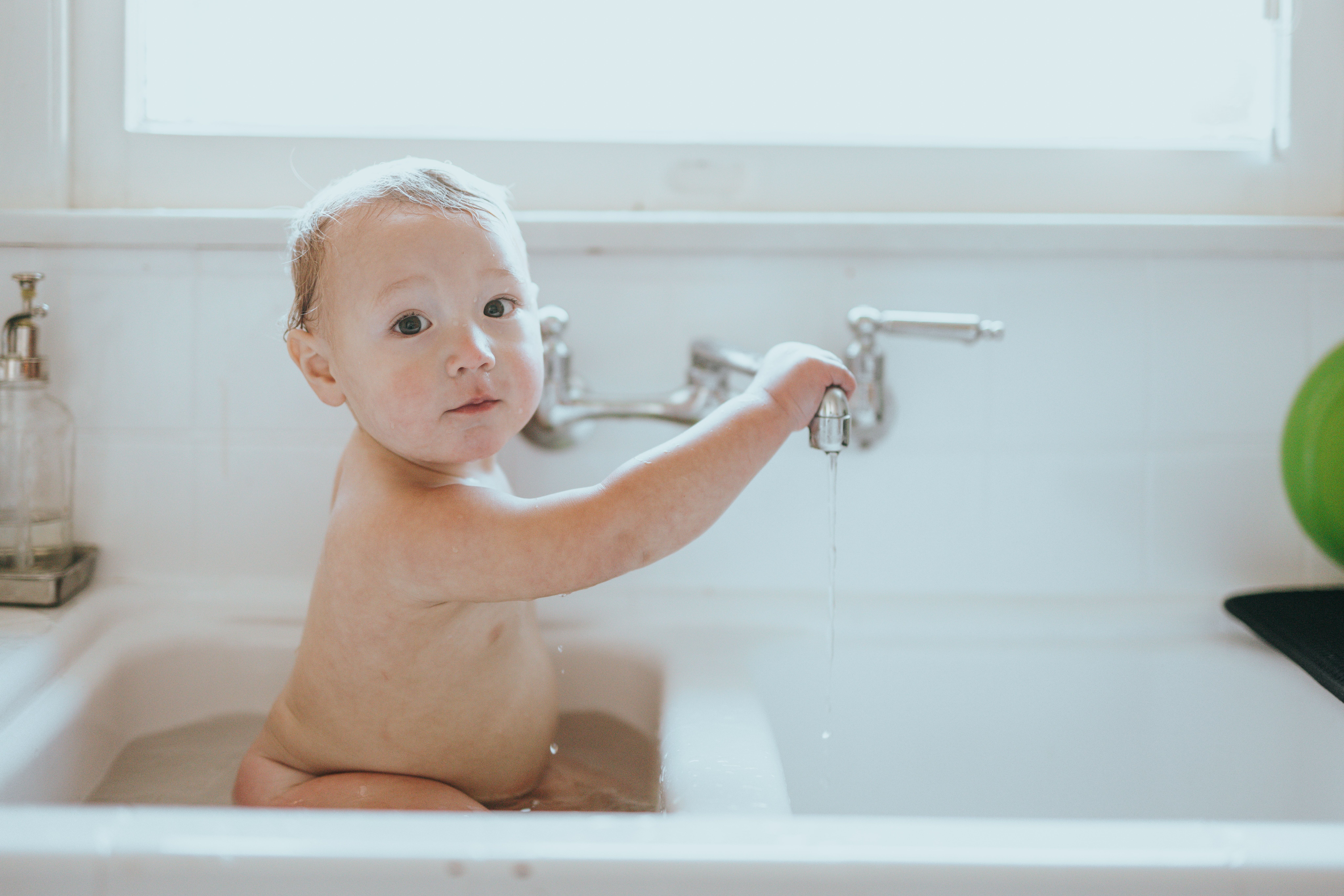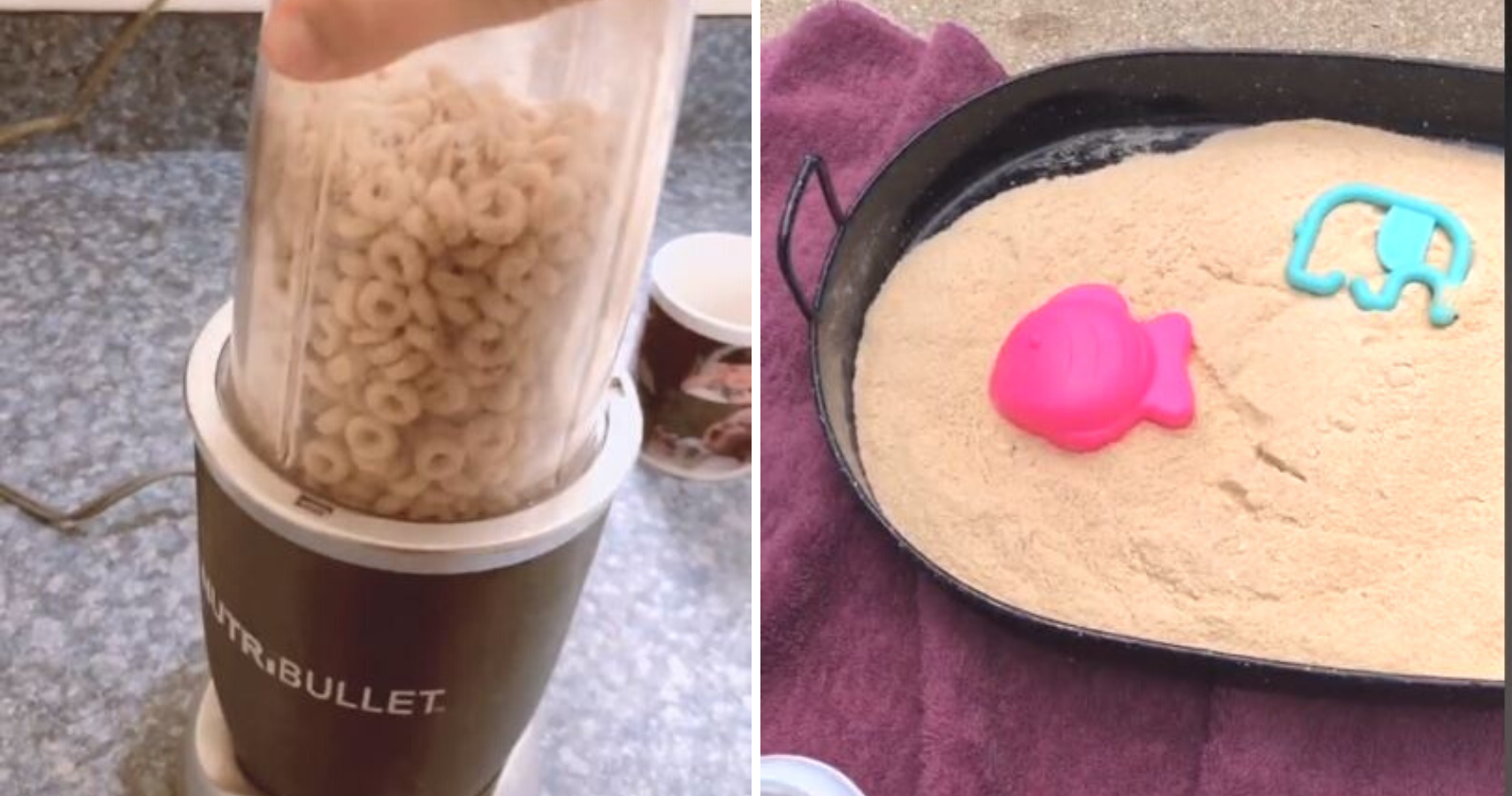This article was originally published on September 26, 2018. It was updated on February 6, 2021 by Ashley Wehrli.
If the average parent did a little Google search on how often they should cuddle their child, they would be overcome by the number of articles saying completely different points of views. I personally think a parent's need to cuddle is strictly personal. Some people are more cuddly than others, and babies can be the same way. Some moms and dads have views of them bringing their cooing child into bed with them so that they can have a few moments of cuddling before feeding time, but other times, that's not the case. Believe it or not, not every child likes to be cuddled. Sometimes an adult swaddling and hugging a child for dear life is all too much for a little one to bare. After all, they're still getting used to this new thing called life and are all too curious than to be stuck to their parent's chest all day.
Every person (and child) likes different things. Are there other reasons, besides personality type, as to why a child doesn't want to be cuddled? Absolutely, there can be multiple reasons why, and the reasons may change as the child develops. But it's important for parents not to get discouraged if their baby isn't a snuggly munchkin. Don't take it personally because here are 10 possible reasons why a baby doesn't want to be cuddled (and 10 other ways to bond with the baby instead).
20 You Do It Too Much!
This isn't just advice for parents and their babies, it's for couples too. Sometimes a cuddly person can be too cuddly. A few morning hugs and mid-afternoon naps are one thing, but constantly being squeezed and swaddled may be too much for one little baby. According to Raising Children, babies can feel overwhelmed if they are being cuddled by too many people, and for too long. Loosen the reigns a little bit and see if this changes your baby's need (or want) for more cuddles. Watch their body language and see what triggers them.
19 They May Prefer Other Forms Of Affection
Just because a baby doesn't like to be hugged or napped with, doesn't mean they dislike affection at all. Parents should still show forms of affection and try to cuddle with them when they want to. According to Baby Center , "These babies usually prefer eye contact to cuddling, and talking to hugging. When your baby tries to escape from your arms, don't hold onto her or retreat to nurse your wounded feelings. Instead, put her on a bed or a rug and lean over her so she can study your face while you talk."
18 They Might Not Be Feeling Well
Why do babies kick and scream and cry sometimes? That's their only form of communication until they learn to speak. Just like how adults whine and complain when they're uncomfortable or sick, a baby is doing the exact same thing in their own way. Be sure to read your baby's signs and be aware of their bowel movements and temperature. This could be why they're not so touchy-feely. Don't be afraid to call your doctor whenever you're slightly concerned that your baby is feeling less than ideal
17 Independence
Sometimes a non-cuddly baby is just that independent. If anything, if a parent notices their baby dislikes being held or snuggled with, maybe they should support this and see it as a sign of independence. They're so young and already know that they can heal and soothe themselves. This is something that they'll most likely use throughout their lives. If a child starts off independent, they'll most likely use those tools as they get older. According to Share Care, babies will start to explore their independence from a young age and it will continue as they grow. This will make for a strong and successful little human. So maybe non-cuddly babies aren't as bad as we think they are?
16 Too Curious
Instead of being held like a kangaroo by their mom or dad, some babies are way too curious to only look at their parent's chest or under their chin. Instead, they'd rather look around, playing with their toes, and try and find people's faces. Not every baby needs to be soothed or attached to an adult. According to What To Expect, one mom told her story of her curious baby, "my son is INSANE. He moves around like a crazy baby. Rolled at 3 months, army crawled at 5 months, crawls everywhere now at 7.5 months and I saw him pulling him to stand yesterday at daycare. He is NOT a cuddler."
15 Wrong Place
Believe it or not, sometimes a baby gets fussy because of where their parent is cuddling or holding. They may not mind the cuddles, but perhaps they dislike the positioning or location in which they're being held. Some babies love being held while being bounced on their knees, while others would rather sit still in their parents' arms. Some kids even love to be cuddled in their bedroom but once they leave the bedroom, it's time to explore! According to Fatherly, it is not uncommon that babies prefer to be held and cuddled when mom is standing up.
14 Colic
Colic is no joke. Medical News Today defines it as "an attack of crying and what appears to be an abdominal pain in young infancy." However, they can cry really over anything for no reason at all, not just abdominal pain. These crying spurts can sometimes last all day. Regardless of time or place, nothing seems to soothe these upset babies, even cuddling. One would suspect cuddling would help a baby feel better, however, sometimes no amount of cuddling can help that. It is important to speak to your child's doctor to try and find some strategies to help them cope.
13 Just An Off Day
Like adults, babies can have off days, too. According to Thriving Relationships, babies are just as prone to having bad days as adults are. This can be especially true if mom has not been having a great day. Babies, and children, are very good at picking up on the stress and emotions that mom is feeling. If mom is having an "off" day, then the baby may as well and it is best to recenter yourself and try and do some things that you enjoy to pick your mood up a little bit.
12 Something Deeper Could Be Happening
According to Help Guide, some mothers may be worried about their baby possibly having autism becuase of their lack of interest in cuddling. Autism signs in babies often go unnoticed, becuase they are seen as "independent" babies. It's small signs like these that make it so important for parents to study their baby. Notice what seems normal and what seems off. Keep in contact with your doctor and let them know your fears for your baby. While there is no way to know what is going on without a conversation with medical professionals, it is always wise to be aware of all possibilities so that mom can watch her baby for other signs.
11 Maybe It's YOU Who Wants To Cuddle — Not Your Child
In some situations, it could be that mom wants to cuddle more than the baby does, and it is important to look at who exactly wants these cuddles. One mom told Parents her revelation after getting upset at her non-cuddly baby. "I realized that maybe my frustration with Mia's standoffishness was misplaced. My neediness was just that -- my own, not hers." While everyone's neediness is their own, it's possible that a parent is needier than their child. Even though they're so small, they still know what they like and don't like.
10 How To Bond: Other Forms Of Affection
"If you still long to stroke the back of your little one's neck and kiss her dimples, do it while she's happily occupied in her highchair or stroller, or while you're changing her diaper," Baby Center says. "That way she can accept your loving caresses without feeling imprisoned in your arms." Okay so "imprisoned" comes off as a little harsh, but it's something to try!
9 How To Bond: Feeding Time
It is a myth that only women can bond with newborn babies when they are breastfeeding. Women who bottle feed can easily bond with their baby just as much. It's a moment of silence together; a time where the two of them can look at one another while doing something so personal. After all, what greater gift is there than being able to nourish your child and see how satisfied your little one is after they're fed. According to Parenting, there are many ways to bond with a baby who is bottle fed.
8 How To Bond: Teaching Them
Even if you didn't go to school for teaching, being a parent is your chance to teach a little one all about life. And first things first is teaching them tummy time! Tummy time is an exercise for babies to help them grow stronger and to learn how to lift their head, strengthen their back, and eventually learn to roll over. This, of course, will one day lead to them learning how to crawl. As a parent, being there and supporting them through tummy time and beyond can do wonders in the bonding department.
7 How To Bond: Mirror Mirror On The Wall
This might be one of the most adorable ways to bond with a non-cuddler: hold your baby in front of a mirror and watch their bewilderment at seeing themselves for the first time! According to Parents, "He doesn't yet understand the concept of a reflection, but that's OK. Babies love looking at human faces and this is a great way to get him up close and personal with his own." It's also a sweet moment for you to watch your little one discover something new. Baby has a chance to see his own reflection, as well as his mothers.
6 How To Bond: Skin-To-Skin
Skin-to-skin is one of the first things parents are told to do once their baby is born. But why? Hearing their mother's heartbeat (even their father's) can bring them back to their cozy time in the womb. They can also smell their mother's scent and remain calm that way as well. According to Unicef, skin-to-skin has many benefits for the baby, but for the parent, it's a chance to feel close to your little one; to feel them breathe, move, and get comfortable. Seeing them so comfortable on your skin for a few minutes will make all their non-cuddly moments seem okay.
5 How To Bond: Bath Time!
Contrary to popular belief, a parent doesn't need to give their baby a full-on bath until after their umbilical cord falls off. According to Seattle Children's Hospital, on average, this happens between 10-14 days after birth. Until then, sponge baths are completely acceptable. Once the baby is old enough for a bath in the tub, this is a major bonding moment. Mom or dad can hold their little one afloat as they get used to kicking their feet and learning the sensation of water around them. It's sweet to see them figure out what water feels like and eventually, they may come to love bath time.
4 How To Bond: Talk To Them
Letting them lay on their backs while you stare at one another and trying to communicate is bonding in itself. Just as bonding for adults is spending one-on-one time with one another, it's the same for parent and child. Bounty says, "No, they won’t understand you, but your baby will already know your voice, and research shows even newborn babies can recognize a smile. So right from the start, stroke their cheek, lean close towards them and smile (at this point they can only see about 30 cms in front of them), chat and sing."
3 How To Bond: Baby Massage
Massaging your baby has a ton of health benefits. According to Baby Center, it as "Baby massage is gentle, rhythmic stroking of your baby's body with your hands." You can use oils to make it more soothing for the baby, too. Doing this is a great form of bonding because the parent can watch their baby feel relaxed. Not to mention baby massages is another form of skin-to-skin, which has numerous benefits. Performing baby massages can also relax your baby and get them ready to sleep.
2 How To Bond: Sensory Play
"When your baby is very young, he will experience more through touch than anything else, so try gently passing different materials over your baby’s tummy or cheek. You can talk about hard and soft, warm and cool, rough and smooth. Your baby may want to grab the items and you can then make a game of taking them back…letting them grab them again…taking them back…and so on," says Bounty. It's also fun to see how your baby reacts, sensory play is great for bonding as well as development.
1 How To Bond: Story Time
Bedtime reading can be a sweet ritual between parent and child. Even before kids learn how to speak or know what their parents are saying, parents can choose books they feel their kids may like in the future. In a sense, a parent essentially chooses their child's favorite book, it's just up to the child to learn to love reading. Reading is also a fun way to be expressive and to feel like a kid again by reading your childhood favorites.
Sources: Raising Children, Baby Center, Share Care, What To Expect, Fatherly, Medical News Today, Thriving Relationships, Help Guide, Parents, Parenting, Parents, Unicef, Seattle Children's Hospital, Baby Center,

